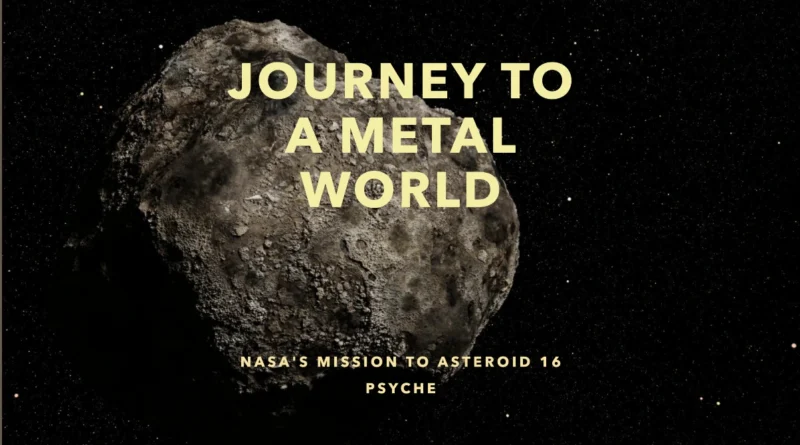Exploring Asteroid 16 Psyche: NASA’s Mission to a Metal World
The universe never ceases to amaze us with its celestial wonders, and one such marvel is the giant metal-rich asteroid known as 16 Psyche. NASA has embarked on an ambitious mission to explore this enigmatic celestial body, aptly named the Psyche mission. In this blog, we will delve into the fascinating world of 16 Psyche, its unique characteristics, the objectives of the Psyche mission, and the potential insights it can offer about our solar system’s history.
Quick Facts about 16 Psyche
| Parameter | Value |
| Name | 16 Psyche |
| Type | Metallic Asteroid |
| Size | Approximately 140 miles wide |
| Location | Between Mars and Jupiter |
| Composition | Predominantly metal-rich |
The Mystery of 16 Psyche
What is 16 Psyche?
Asteroid 16 Psyche is not your average space rock. It stands out in the asteroid belt, located between the orbits of Mars and Jupiter. What sets it apart is its composition – it’s a metallic asteroid, primarily made of metal. Imagine a colossal ball of iron and nickel, floating in space.
Psyche Mission: Journey to the Metal World
NASA’s Psyche mission is a groundbreaking endeavor aimed at unlocking the secrets of this intriguing asteroid. Let’s take a closer look at the mission itself.
Psyche Mission Overview
| Mission Objective | Launch Date | Key Activities |
| Explore 16 Psyche’s features, structure, composition, and magnetic field | October 13 (Scheduled) | Arrival at 16 Psyche and extensive data collection |
Unveiling the Mysteries of 16 Psyche
The Psyche mission holds several key objectives:
Understanding Planetary Cores
One of the primary goals of this mission is to gain insights into the origins of planetary cores. Planetary cores are the central, often metallic, parts of planets. By studying 16 Psyche, scientists hope to learn more about the early history of our solar system and the processes that led to the formation of rocky planets like Earth.
Composition Analysis
The metal-rich nature of 16 Psyche presents a unique opportunity for scientists to study a celestial body with a composition different from typical stony or icy asteroids. Analyzing the specific elements and compounds present can provide valuable clues about the asteroid’s origin and its role in the formation of our solar system.
Magnetic Field Investigation
Magnetic fields are significant indicators of celestial bodies’ internal structures. Studying the magnetic field of 16 Psyche can offer insights into its core and whether it exhibits magnetic properties similar to Earth or other planetary bodies.
Potential Discoveries with Psyche Mission
| Discovery | Potential Insights |
| Understanding planetary core origins | Insights into Earth’s core formation processes |
| Composition analysis | Clues about the early solar system’s composition |
| Magnetic field investigation | Understanding the asteroid’s internal structure |
The Road Ahead
The Psyche mission is all set for launch on October 13. Once it reaches 16 Psyche, it will orbit the asteroid and meticulously study its various characteristics. The data collected during this mission promises to shed light on the history and formation of our solar system.
As we eagerly await the results of this groundbreaking mission, it’s clear that exploring the vast cosmos continues to offer tantalizing opportunities to expand our knowledge of the universe. 16 Psyche, the metallic wonder in the asteroid belt, is just one more celestial body waiting to reveal its secrets, and the Psyche mission is the key to unlocking those mysteries.
In summary, NASA’s mission to explore Asteroid 16 Psyche represents a remarkable journey into the unknown. With its metallic composition and unique characteristics, 16 Psyche has the potential to provide invaluable insights into the early history of our solar system and planetary core formation. The Psyche mission is on the cusp of a historic launch, and the data it collects will undoubtedly deepen our understanding of the cosmos. Stay tuned for more discoveries from the metal world of 16 Psyche.
References:




